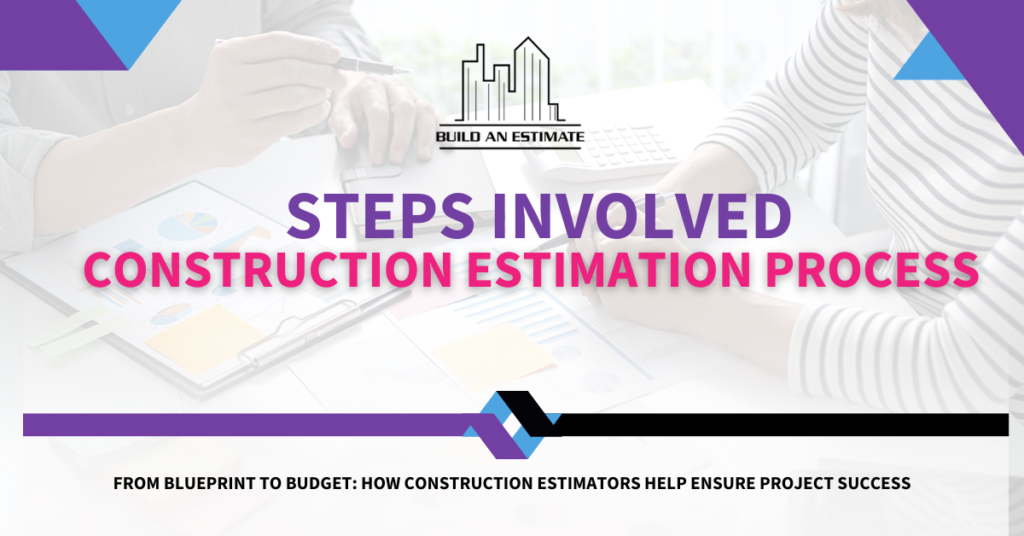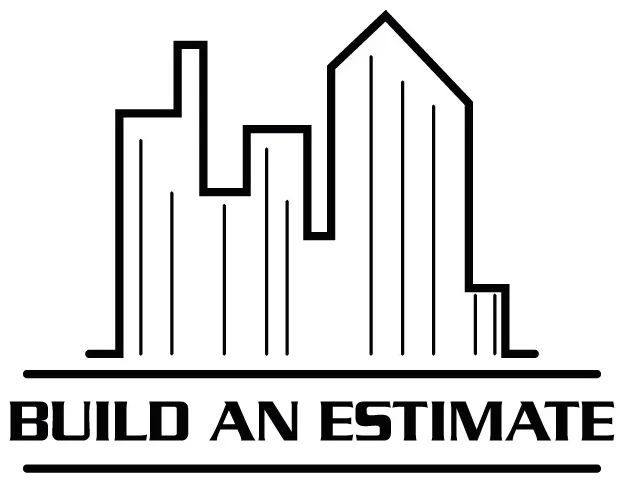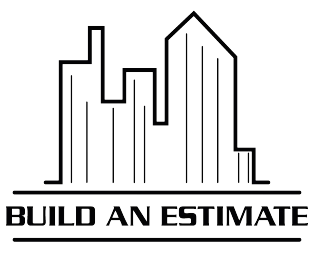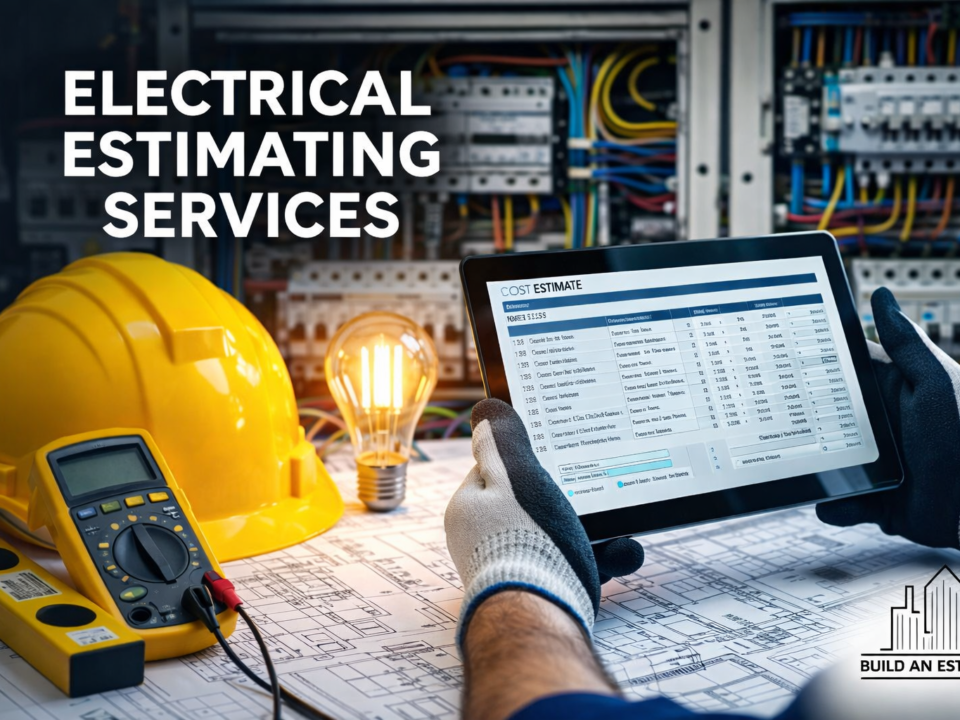- HOME
- SERVICES
- OUR TRADES
- ARCHITECTURAL DESIGN
- SAMPLES
- OUR PROJECTS
- ABOUT US
- CONTACT US
- Home
- Services
- Our Trades
- Samples
- Pricing
- Blog
- About Us
- Contact
- HOME
- SERVICES
- OUR TRADES
- ARCHITECTURAL DESIGN
- SAMPLES
- OUR PROJECTS
- ABOUT US
- CONTACT US
- Home
- Services
- Our Trades
- Samples
- Pricing
- Blog
- About Us
- Contact

The Importance of Hiring Construction Estimating Consultants for Accurate Project Budgeting
July 19, 2023
Maximize Efficiency and Accuracy with Xactimate Estimating Services
July 27, 2023From Blueprint to Budget: How Construction Estimators Help Ensure Project Success
Table of Content:
- The Role of a Construction Estimator
- Steps Involved in the Construction Estimation Process
- Key Factors to Consider When Creating a Construction Budget
- Tools and Software Used by Construction Estimators
- Best Practices for Construction Cost Estimation
- The Benefits of Hiring a Professional Construction Estimator
- How Construction Estimators Contribute to Project Success
- Common Challenges Faced by Construction Estimators and How to Overcome Them
- Conclusion: The Importance of Construction Estimators in Achieving Project Goals
- FAQ
When it comes to construction projects, success lies in the details. From the initial blueprint to the final budget, every step must be meticulously planned and executed to ensure a smooth and successful outcome. This is where construction estimators play a crucial role. These skilled professionals are the backbone of any construction project, working tirelessly behind the scenes to analyze blueprints, assess materials and labor costs, and create a comprehensive budget that aligns with the client’s vision and expectations.
With their expertise in cost analysis and project management, construction estimators help navigate the complex world of construction, ensuring that projects are completed on time, within budget, and to the highest standards. In this article, we will explore the invaluable role of construction estimators and how their meticulous planning and budgeting contribute to the overall success of construction projects.
The Role of a Construction Estimator
Construction estimators are responsible for accurately estimating the costs involved in a construction project. They carefully analyze construction blueprints and specifications, take into account the materials and labor required, and calculate the associated costs. Estimators also consider factors such as permits, licenses, insurance, and any other expenses that may arise during the project. Their role is crucial in ensuring that clients have a clear understanding of the financial implications of their construction project and that the budget is realistic and feasible.
Accurate cost estimation is essential for project planning and decision-making. It helps clients make informed choices about the scope of their project, choose the right materials and construction methods, and set realistic timelines. Construction estimators use their expertise to identify potential cost-saving opportunities and suggest alternatives that can help clients stay within budget without compromising on quality.
Steps Involved in the Construction Estimation Process

The construction estimation process is a complex and systematic approach that involves multiple steps. These steps ensure that every aspect of the project is considered, and no cost is overlooked. Here are the key steps involved in the construction estimation process:
1. Reviewing the Project Requirements: Estimators carefully review the project requirements, including the blueprints, specifications, and any additional information provided by the client. This helps them gain a thorough understanding of the project scope and the client’s expectations.
2. Quantifying Materials and Labor: Estimators determine the quantities of materials required for the project, such as concrete, steel, bricks, and other building supplies. They also evaluate the labor requirements, considering factors such as the number of workers, their skill levels, and the time required to complete each task.
3. Analyzing Costs: Based on the quantities of materials and labor, estimators assess the costs associated with each component. They consider factors such as current market prices, availability of materials, and labor rates to ensure accurate cost calculations.
4. Accounting for Overhead Costs: Estimators include overhead costs such as permits, licenses, insurance, equipment rentals, and administrative expenses. These costs are essential for a comprehensive budget that covers all aspects of the construction project.
5. Creating a Detailed Budget: Estimators compile all the cost estimates into a detailed budget that outlines the expected expenses throughout the project’s duration. This budget serves as a roadmap for the client and the project team, ensuring that everyone is aware of the financial implications and can make informed decisions accordingly.
Key Factors to Consider When Creating a Construction Budget
Creating a construction budget requires careful consideration of various factors to ensure its accuracy and feasibility. Here are some key factors that construction estimators take into account when creating a budget:
1. Scope of the Project: The size and complexity of the project have a significant impact on the budget. Estimators assess the scope of work required, including the number of buildings, floors, rooms, and any additional features or amenities.
2. Site Conditions: The location and condition of the construction site can affect the budget. Estimators consider factors such as accessibility, terrain, soil conditions, and any necessary site preparation or remediation.
3. Materials and Labor: Estimators evaluate the cost of materials based on their quality, availability, and market prices. They also consider labor costs, including wages, benefits, and any specialized skills or certifications required.
4. Project Schedule: The duration of the project is an important factor in determining the budget. Estimators account for the time required for each phase of construction, including site preparation, foundation work, structural framing, MEP (mechanical, electrical, and plumbing) installations, and finishing.
5. Contingency: Construction estimators include a contingency allowance in the budget to account for unforeseen circumstances or changes in the project scope. This buffer helps mitigate risks and ensures that the budget remains realistic and flexible.
Tools and Software Used by Construction Estimators
To streamline the estimation process and improve accuracy, construction estimators rely on various tools and software. These technological advancements have revolutionized the construction industry, enabling estimators to work more efficiently and produce more accurate estimates. Here are some commonly used tools and software:
1. Takeoff Software: Takeoff software allows estimators to measure quantities from digital blueprints and create detailed material lists. This eliminates the need for manual measurements and reduces the chances of errors.
2. Estimating Software: Estimating software helps estimators organize and calculate costs more efficiently. These software solutions often include databases with up-to-date material prices, labor rates, and other essential information that can be customized for specific projects.
3. Building Information Modeling (BIM) Software: BIM software allows estimators to create 3D models of the project, enabling them to visualize and analyze different design options. This helps in accurate quantity takeoffs and cost estimation.
4. Cost Databases: Estimators rely on cost databases that provide comprehensive information on material prices, labor rates, equipment costs, and other construction-related expenses. These databases are regularly updated to reflect market fluctuations and ensure accurate cost estimation.
5. Collaboration Tools: Construction estimators often use collaboration tools to communicate and share information with other members of the project team. These tools facilitate real-time collaboration, ensuring that everyone is on the same page and can contribute to the estimation process.
Best Practices for Construction Cost Estimation
To ensure accurate and reliable cost estimation, construction estimators follow best practices that have been refined through years of experience. Here are some essential best practices for construction cost estimation:
1. Thorough Analysis: Estimators conduct a thorough analysis of the project requirements and specifications to ensure accurate cost estimation. They pay attention to every detail and consider all possible factors that may affect the project’s cost.
2. Continuous Learning: Construction estimators stay updated with the latest industry trends, materials, and construction methods. They continuously enhance their knowledge and skills to provide clients with the most accurate and cost-effective estimates.
3. Collaboration: Estimators collaborate with architects, engineers, contractors, and other stakeholders to gather insights and validate their estimates. This collaborative approach ensures that all perspectives are considered and that the estimation process is comprehensive.
4. Documented Assumptions: Estimators document all assumptions made during the estimation process. This helps in addressing any discrepancies or changes in the future and provides transparency to the client and project team.
5. Regular Reviews: Estimators regularly review and update their estimates as the project progresses. This helps identify any deviations from the original budget and allows for timely adjustments if needed.
The Benefits of Hiring a Professional Construction Estimator
Hiring a professional construction estimator brings numerous benefits to a construction project. Here are some key advantages of working with a professional estimator:
1. Accurate Cost Estimation: Professional estimators have the expertise and experience to provide accurate cost estimates. Their meticulous approach ensures that no cost is overlooked, enabling clients to make informed decisions and avoid unexpected expenses.
2. Time and Cost Savings: By accurately estimating costs, professional estimators help clients avoid costly surprises and unnecessary expenses. They identify cost-saving opportunities and suggest alternatives that help clients stay within budget without compromising on quality.
3. Project Planning and Control: Professional estimators contribute to effective project planning by providing detailed budgets and timelines. This helps clients and project teams set realistic goals, allocate resources efficiently, and monitor progress throughout the project’s duration.
4. Risk Mitigation: Professional estimators include contingency allowances in the budget to account for unforeseen circumstances. This helps mitigate risks and ensures that the project remains on track even in the face of unexpected challenges.
5. Expert Advice: Professional estimators provide valuable insights and advice based on their extensive knowledge of construction costs and industry standards. Their expertise helps clients make informed decisions and achieve the best possible outcomes for their projects.
How Construction Estimators Contribute to Project Success
Construction estimators play a crucial role in project success by ensuring that all financial aspects are well-planned and executed. Their meticulous planning and budgeting contribute to the overall success of construction projects in the following ways:
1. Budget Compliance: Construction estimators create realistic budgets that align with the client’s expectations and financial capabilities. By adhering to the budget, projects can avoid financial strain, delays, and potential disputes.
2. Resource Allocation: Estimators help allocate resources efficiently by accurately estimating the quantities of materials and labor required. This ensures that resources are utilized optimally, minimizing waste and maximizing productivity.
3. Supplier Selection: Estimators help clients select the right suppliers based on their cost estimates and market knowledge. This ensures that clients get the best value for their money and access high-quality materials and services.
4. Risk Management: Estimators identify potential risks and challenges during the estimation process and include contingency allowances in the budget. This proactive approach helps mitigate risks and ensures that projects can overcome unexpected obstacles without major disruptions.
5. Profitability: By accurately estimating costs and optimizing resource allocation, construction estimators contribute to the profitability of construction projects. Their expertise helps clients achieve their financial goals while delivering high-quality results.
Common Challenges Faced by Construction Estimators and How to Overcome Them
Despite their expertise, construction estimators face several challenges in their line of work. Here are some common challenges and strategies to overcome them:
1. Incomplete or Inaccurate Information: Estimators rely on accurate and comprehensive project information to provide reliable estimates. To overcome this challenge, they engage in thorough communication with the client, architects, engineers, and other stakeholders to gather all necessary details.
2. Market Volatility: Fluctuations in material prices and labor rates can pose challenges in accurate cost estimation. Estimators stay updated with market trends and maintain a network of suppliers to ensure that their estimates reflect current market conditions.
3. Changing Project Scope: Changes in the project scope can impact the budget and timeline. Estimators work closely with clients and project teams to assess the impact of changes and adjust the budget accordingly.
4. Limited Timeframes: Construction estimators often face tight deadlines, especially during the bidding process. To overcome this challenge, they prioritize tasks, leverage technology tools, and collaborate effectively to meet the required timelines.
5. Competitive Bidding: Estimators face the challenge of competing with other contractors during the bidding process. To stand out, they focus on delivering accurate and detailed estimates, showcasing their expertise and track record, and building strong relationships with clients.
Conclusion: The Importance of Construction Estimators in Achieving Project Goals
Construction estimators play a vital role in the success of construction projects. Their expertise in cost analysis, meticulous planning, and budgeting contributes to efficient project execution, financial stability, and client satisfaction. By accurately estimating costs, identifying cost-saving opportunities, and managing risks, construction estimators ensure that projects are completed on time, within budget, and to the highest standards. Their dedication and attention to detail help navigate the complex world of construction, turning blueprints into reality and ensuring project success from start to finish.
In conclusion, construction estimators are the unsung heroes behind every successful construction project. Their invaluable contributions help turn visions into reality, ensuring that projects are executed seamlessly, within budget, and to the highest standards. From blueprint to budget, construction estimators play a crucial role in achieving project goals and delivering exceptional results. So, the next time you embark on a construction project, remember to enlist the expertise of a professional construction estimator to pave the way for success.
FAQ
Q. What is a construction estimator?
A construction estimator is a professional who estimates the cost of a construction project. They use their knowledge of construction materials, labor costs, and other factors to create a detailed estimate that helps the project stay on budget.
Q. What do construction estimators do?
Construction estimators typically do the following:
- Gather information about the project, such as the blueprints, scope of work, and materials list.
- Estimate the cost of materials, labor, and other expenses.
- Create a detailed estimate that includes a breakdown of costs.
- Review the estimate with the client and make sure that it is accurate.
- Monitor the project to ensure that it stays on budget.
Q. Why are construction estimators important?
Construction estimators are important because they help to ensure that construction projects stay on budget and on time. They use their expertise to identify potential cost overruns and make recommendations to avoid them. This can save the client a significant amount of money.
Q. What are the benefits of hiring a construction estimator?
There are many benefits to hiring a construction estimator, including:
- Increased accuracy of estimates.
- Reduced risk of cost overruns.
- Improved project management.
- Increased peace of mind for the client.
Q. How do I find a good construction estimator?
There are a few things you can do to find a good construction estimator, including:
- Ask for recommendations from friends, family, or colleagues.
- Search online for construction estimators in your area.
- Check with the Better Business Bureau to see if there are any complaints against the estimator.
- Interview the estimator to get a sense of their experience and expertise.






